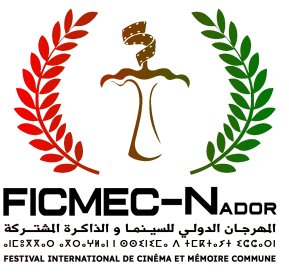
The shared memory center for democracy and peace (CMCDP) is a national human rights association with international extensions whose fields of action are:
- Issues related to memory and shared memory as knowledge and expertise;
- Promoting a culture of peace, coexistence and democracy;
- The fight against all forms of extremism;
- Defending human rights and contributing to the dissemination of their culture;
- Questions of identity and linguistic and cultural diversity.
- The consolidation and development of the values of solidarity and constructive dialogue between peoples and nations;
- Support for all generations of human rights.
It organizes an annual film festival in Nador, called the Festival International de Cinéma et Mémoire Commune (FICMEC), dedicated to the theme of memory.
In 2025, the theme of the 14th edition of the festival will be “The Memory of Peace”.
While some define peace as non-war, others go so far as to oppose it to all forms of violence. Although the preachers and emissaries of peace are constantly calling for :
- reconciliation between belligerents and warmongers to put an end to hostilities or ward off aggression and tip the balance in favor of collective intelligence;
- overcoming the stigma of the past through far-sighted dialogue and harmonious international relations;
- the promotion of a universal culture of pacifism through, among other things, the inclusion of the values of tolerance and fraternity in educational curricula;
- unanimous ratification of UN resolutions;
the resurgence of political, economic, religious and doctrinaire disputes has overtaken the voice of reason, compromising good-faith initiatives and plunging the international community into moral disarray.
The loss of life and devastation caused by any armed confrontation can be counted or at least estimated in post-war periods. Quantifiable, they provide information on the seriousness of the human and material damage caused or suffered. But who can accurately determine the impact of psychological trauma, accurately diagnose the wounds of the soul, and meticulously assess the after-effects of violence?
Memory wounds are difficult to suture in the short or medium term. To purge resentment, bend vindictiveness and soothe tormented consciences, taking the long and steep road to reconciliation seems the ideal solution for turning the bloody pages of the past. Memories, stories of resilience, forgiveness and solidarity, as well as shared painful experiences, are the best way to get rid of animosity and make way for amnesty.
The “Memory of Peace”, a concept that focuses on the elements of the past that call for appeasement and the building of a common future, has as its main foundations reconciliation and mutual understanding, learning from the mistakes of the past, anchoring the culture of non-violence in people's minds, and above all transmitting this memory to future generations through education, testimony and the arts, particularly cinema, which is a powerful vector of emotion and empathy.
In the light of the above, films will be selected that deal with one of the following themes:
- Reconciliation after war or genocide.
- Mutual understanding to overcome hatred and suffering and rebuild human and social bonds.
- Forgiveness and resilience
- Peace movements
- Emblematic figures of peace
- Learning from past mistakes
- spreading the values of justice and tolerance
- Anchoring the culture of non-violence in individual and collective memories
- Community initiatives that model peace and social cohesion
- Peace education through pedagogical approaches
As this list is not exhaustive, the festival management welcomes films dealing with other peace-related issues.

